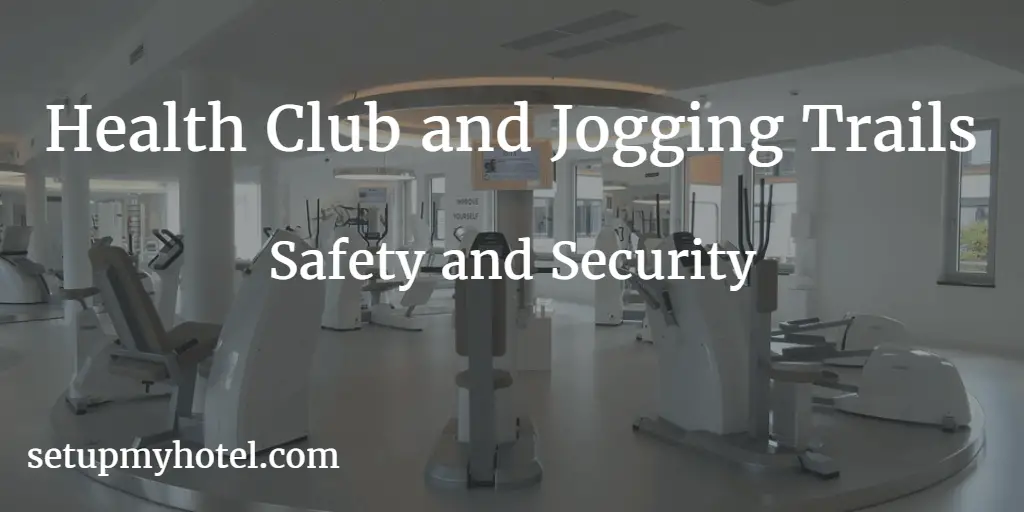Health Clubs and Jogging Trails Safety and Security
When it comes to health clubs and jogging trails, safety and security are two of the most important concerns for both users and owners. For health clubs, the safety of members is paramount. This means ensuring that equipment is well-maintained, the premises are well-lit and secure, and staff are trained in emergency procedures.
For jogging trails, safety is also a significant concern, particularly in isolated or poorly-lit areas. Runners should carry a mobile phone and let someone know their route, and it’s always a good idea to run with a buddy. Additionally, joggers should wear reflective clothing and carry a whistle or other personal safety device.
SecuritySecurity is the prevention of theft; fire; and other emergency situations in the workplace. is another important consideration for health clubs and jogging trails. Members’ personal belongings should be kept safe and secure, and staff should be trained to identify and prevent theft and other security risks. In the case of jogging trails, surveillance cameras and increased police patrols can help to deter crime and improve safety for runners.
Many properties with health clubs post a disclaimer and/or have guests sign a release stating that the guest is using the facilities at his or her own risk.
Some jurisdictions, however, do not recognize such exculpatory agreements. Consult legal counsel.
In addition to containing a disclaimer stating that the guest is exercising at his or her own risk, signage in an exercise room may make several points:
- Guests should consult their physicians before exercising and follow their advice. Guests should not over-exercise.
- The improper use of exercise equipment can result in injury. Equipment should be used carefully and only for its intended purpose.
- If the room is not supervised, guests should not exercise alone.
- If the manufacturer of the equipment provides written instructions for its use, they should be posted and guests should be directed to read them.
- If the property has a minimum age requirement for the use of the exercise facilities, this requirement should be posted.
Guests sometimes do not know their limits. If the property has an exercise room attendant, guests may ask the attendant for advice concerning an appropriate exercise program.
Professional advice in a fitness program should only be given by a qualified individual. An attendant should not be permitted to test a guest’s heart rate and blood pressure and then recommend a program of physical exercise.
If a guest suffers a heart attack while following the program, a property could face liability for the injury or death because the attendant was not medically qualified to assess the victim’s overall health in recommending a physical fitness program.
Guests should be urged to consult their physicians concerning whether they are physically able to meet the regimen of an exercise program.
Health clubs and jogging trails are becoming increasingly popular. Many properties have installed or are installing exercise equipment for guest use. Properties that offer these services can take steps to reduce both the possibility of injuries to guests and the property's potential liability for such injuries.











